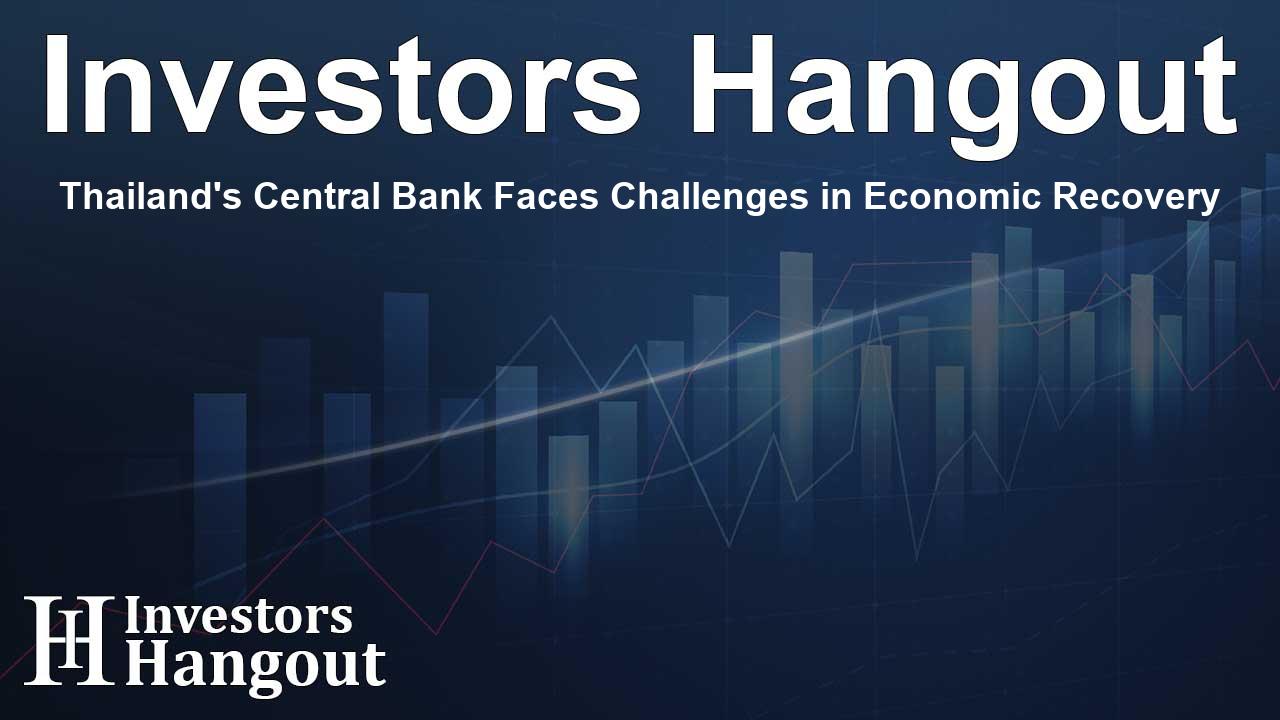Thailand's Central Bank Faces Challenges in Economic Recovery

Thailand's Economic Landscape
Recent discussions from the Bank of Thailand reveal a complex economic climate affecting the country. According to the newest minutes from the monetary policy committee meeting, the nation's economic recovery is showing signs of instability and the tightening of financial conditions has raised concerns among policymakers.
Monetary Policy Adjustments
During the meeting held in mid-October, the committee made an unexpected decision. They voted 5-2 to decrease the one-day repurchase rate by 25 basis points, bringing it down to 2.25%. This marks the first rate cut since 2020, indicating a significant shift in the central bank's approach to managing the economy.
Reasoning Behind the Rate Cut
The monetary policy committee recognized that the current policy rate was essential to remain neutral, aligning with the country’s economic potential. According to the BOT, keeping the rate at a lower level could lead to potential financial imbalances in the long run.
The Outlook for Future Rate Reviews
The committee plans to review the rate again in December. This upcoming meeting is crucial, as it will focus on how these adjustments impact the overall financial stability and the ongoing economic recovery process.
Impact on Consumers and Businesses
The central bank's decision to cut the interest rate aims to facilitate borrowing and stimulate spending among consumers and businesses. By lowering the cost of loans, the aim is to encourage investment and consumption, which are vital for a robust recovery.
Long-Term Financial Stability Considerations
Despite the necessity for immediate economic stimulation, the Bank of Thailand has expressed concerns regarding maintaining long-term financial stability. There is a delicate balance that must be kept to ensure that short-term boosts do not lead to future challenges.
Conclusion: Navigating Economic Challenges
Thailand is currently navigating through an uneven economic journey. The latest decisions made by its central bank are a response to current financial conditions, with an aim to foster recovery while remaining vigilant about long-term stability. As policymakers keep a close eye on economic indicators, the outcomes of future meetings will be pivotal for Thailand's economic trajectory.
Frequently Asked Questions
What did the Bank of Thailand decide in their latest meeting?
The Bank of Thailand decided to cut the one-day repurchase rate by 25 basis points to 2.25%, marking the first decrease since 2020.
Why is Thailand's economic recovery considered uneven?
Thailand's economic recovery is uneven due to varying impacts across sectors and tightening financial conditions, which create challenges for sustained growth.
When will the next monetary policy meeting take place?
The next monetary policy meeting is scheduled for December 18, where the committee will reassess the interest rate.
What are the long-term goals of the Bank of Thailand's rate cuts?
Long-term goals include facilitating growth while preventing financial imbalances that could arise from prolonged low-interest rates.
How does the rate cut affect consumers and businesses?
The rate cut aims to lower borrowing costs, encouraging both consumer spending and business investments to support economic recovery.
About Investors Hangout
Investors Hangout is a leading online stock forum for financial discussion and learning, offering a wide range of free tools and resources. It draws in traders of all levels, who exchange market knowledge, investigate trading tactics, and keep an eye on industry developments in real time. Featuring financial articles, stock message boards, quotes, charts, company profiles, and live news updates. Through cooperative learning and a wealth of informational resources, it helps users from novices creating their first portfolios to experts honing their techniques. Join Investors Hangout today: https://investorshangout.com/
Disclaimer: The content of this article is solely for general informational purposes only; it does not represent legal, financial, or investment advice. Investors Hangout does not offer financial advice; the author is not a licensed financial advisor. Consult a qualified advisor before making any financial or investment decisions based on this article. The author's interpretation of publicly available data shapes the opinions presented here; as a result, they should not be taken as advice to purchase, sell, or hold any securities mentioned or any other investments. The author does not guarantee the accuracy, completeness, or timeliness of any material, providing it "as is." Information and market conditions may change; past performance is not indicative of future outcomes. If any of the material offered here is inaccurate, please contact us for corrections.








